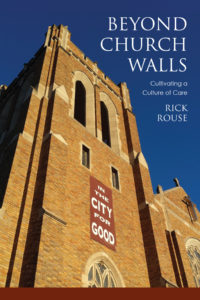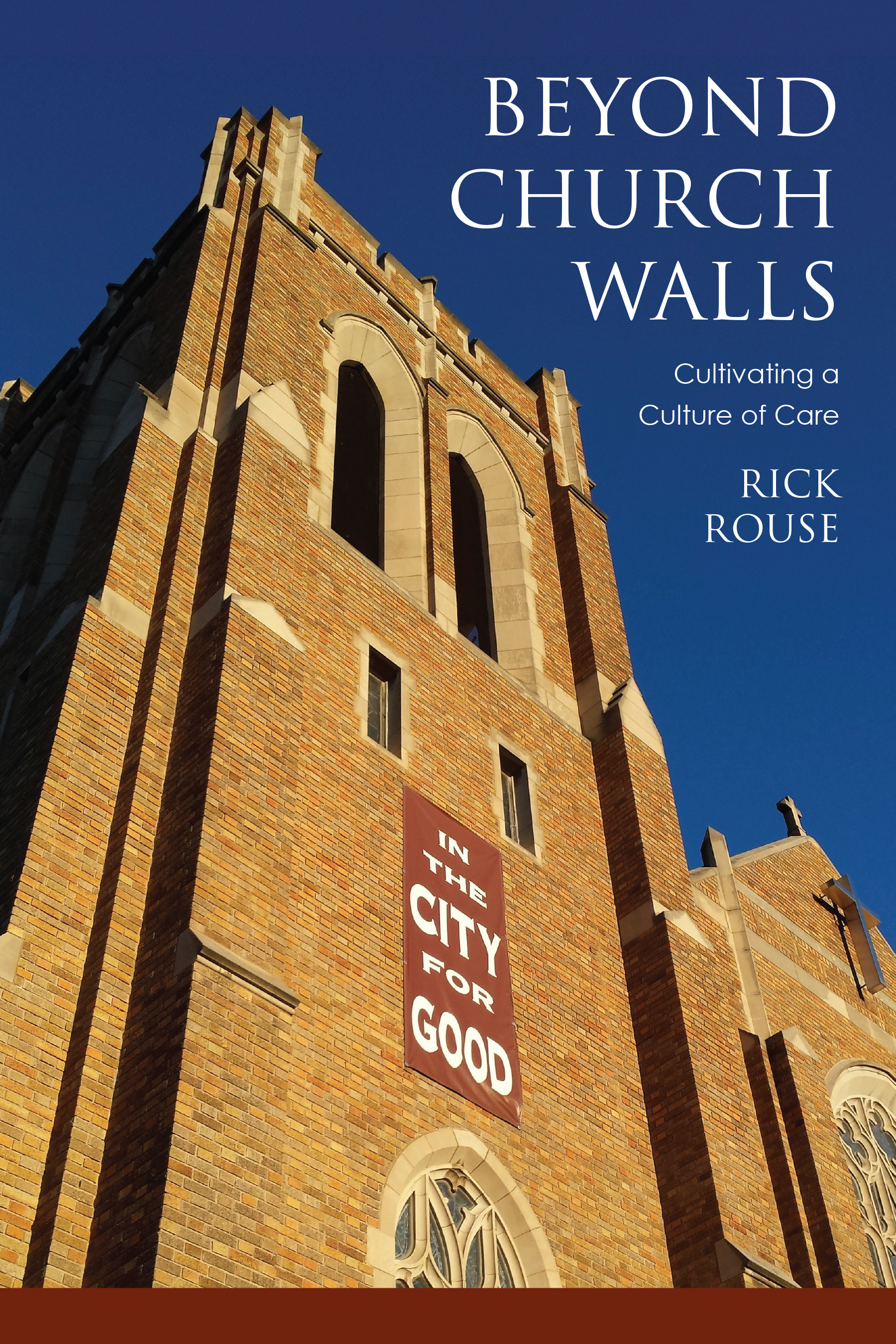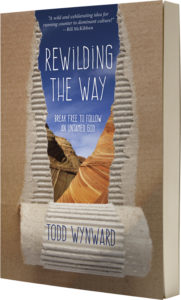While on vacation, I had the opportunity to read several books. I found them to be works that provided a feast for my mind and my heart. They instructed and challenged.
The first book I read was Rewilding the Way: Break Free to Follow an Untamed God, Todd Wynward (Herald Press, Harrisburg, 2015). Reading this book was an ironic experience for me. I read Wynward’s book while lounging beside a pool at a Hawaiian resort. Wynward calls his readers to enter the wilderness, to break free of the slavery of today’s culture and society, and to live a life that is spiritually deep and ecologically sound. I read Wynward’s challenge as I drank a beer and soaked up the sun, while island music played in the background.
Do you remember the story of the rich man who asked Jesus what he had to do to have eternal life? (Mark 10:17-21). Jesus told him to sell all of his possessions and give the money to the poor. The man went away sorrowful because he couldn’t do what Jesus asked. When I read Wynward’s book, I felt like that rich man. Wynward encourages his readers to go into the wilderness and remove themselves from the influences and confines of modern-day culture and society. The wilderness can be a forest campsite, a secluded beach or a ramada in the desert. In the wilderness we can reflect on the pressure to conform, the constrictions that hinder us from living out our faith and the confines of religious normalcy.
This is a valid challenge. We do need to “get away.” What about us, though, who don’t like the wilderness? Personally, I hate camping. Swatting mosquitoes, being enveloped in smoke from a campfire and sleeping on rocky ground does not appeal to me. I like to hike in the desert, but I don’t want to be far from air conditioning. Does the wilderness need to be so alien? This is my one criticism of Wynward’s book.
The book conveys a vital message. Christians do need to “get away” and reflect on what it means to be a disciple of Jesus and a member of a consumer centered society. We need to realize that we are called to love our neighbor and to love the earth on which we live. Wynward has done this in the wilderness, but he doesn’t offer any suggestions for those of us who don’t like the wilderness. Wynward is a minimalist. He lives in the country, grows his own vegetables and has reduced the environmental impact of his life. He doesn’t offer a lot of options to this lifestyle, though. What about those of us who can’t escape the bondage of living in suburbia, working in the city and commuting?
I think this is an important book to read, but I was tempted to go away sorrowful like the rich man. Perhaps other readers will be too. Resisting that urge, though, I found that the book prodded me to ponder many things I take for granted. The book challenged me to make changes in my life and inspired me to action. It might just do the same for you.
The second book that I read was entitled, Beyond Church Walls, Rick Rouse (Fortress Press, Minneapolis, 2016). I can share my thoughts about the book in two words, “Great book!”
The Church is going through many changes as it faces a multitude of challenges presented by today’s culture. Business as usual doesn’t work anymore. With so many challenges to face and so many changes to make, many congregations are like deer caught in the headlights of an oncoming car. They freeze. They don’t know whether they should go to the left, or to the right or to jump. Rouse’s book gives congregations a clear path to follow. 
This book will not solve all of the changes and challenges that congregations face. That would probably take an entire library. It will help congregations, however, develop effective ministries for the people of their community that share God’s love and grace and proclaim the gospel of Jesus Christ. Rouse’s book does this by 1): Getting the care of people off the backs of pastors and church staff and placing it in the lives of laity, and 2): Shifting the focus of the congregation’s ministry from inside the congregation to outside the church’s walls. Rouse shows the reader how this can be done.
The book shines in its practical approach to congregational ministry. Rouse shows how to reframe pastoral care, address the roadblocks to change, create caring communities and catch a vision for ministry. He draws from his years of service in ministry, and also from the real life experiences of congregations that are making effective changes and meeting the daunting challenges that they face.
Rouse’s book isn’t a hard read. It is interesting and it is motivating. I think this is an important book for pastors, congregational leaders and anyone interested in church and in effectively sharing the gospel of Jesus Christ.
Craft Brewed Jesus: How a History We Never Knew Taps a Spirituality We Really Need, Michael Camp (Resources Publications, Eugene, OR 2061) was the third book that I read. Wow! I love this book!
 There is a great division in the Christian church in the United States (as there are in so many areas of our nation). On one side of the chasm is the group of Christians who are commonly labeled conservative evangelicals and fundamentalists. On the other side are Christians from the mainline denominations and, for lack of a better phrase, those who have a more liberal theological stance. I think Michael’s book takes a major step toward bridging the gap between the groups.
There is a great division in the Christian church in the United States (as there are in so many areas of our nation). On one side of the chasm is the group of Christians who are commonly labeled conservative evangelicals and fundamentalists. On the other side are Christians from the mainline denominations and, for lack of a better phrase, those who have a more liberal theological stance. I think Michael’s book takes a major step toward bridging the gap between the groups.
Michael has personally crossed the bridge from being a conservative evangelical to having a more liberal theological stance. In his first book, he records his journey. In Craft Brewed Jesus, he shares his search for a better, clearer understanding of Scripture and the teachings of Jesus. Michael does this gently in story form, using the tools of history and word studies. Often times he does this over a glass of beer. The various discoveries in his search are explained succinctly, clearly and logically and they are done in a positive manner. This may be what I like most about the book. Michael is not negative, judgmental or overly critical as he shares what he and his friends have found.
I would hope that those on the conservative evangelical side of the divide might understand their brothers and sisters in the faith more. This book will also help those who have a more liberal theological stance have a clearer understanding of the “why” of their position. There are many disciples of Jesus who are “pro-gay.” They are not sure, though, how the Bible and the teachings of Jesus empower them to take such a stance. There are other issues, also, such as women in leadership, faith’s relationship with science and interfaith dialogues where the Biblical underpinnings of a positive stance are uncertain. Michael helps the reader understand how Scripture and the teachings of Jesus invite them to such a perspective.
This is not a book with big, technical words and convoluted theological concepts. It is not a text-book, though it could be used as one. It is a book that contains the story of a personal journey. It invites the reader to join the journey, to read the Bible, to wrestle with its words and to allow the Spirit to move within him or her. Craft Brewed Jesus, is a good book. It is a book that I highly encourage you to pick up a copy and read. I don’t think you will be disappointed.


